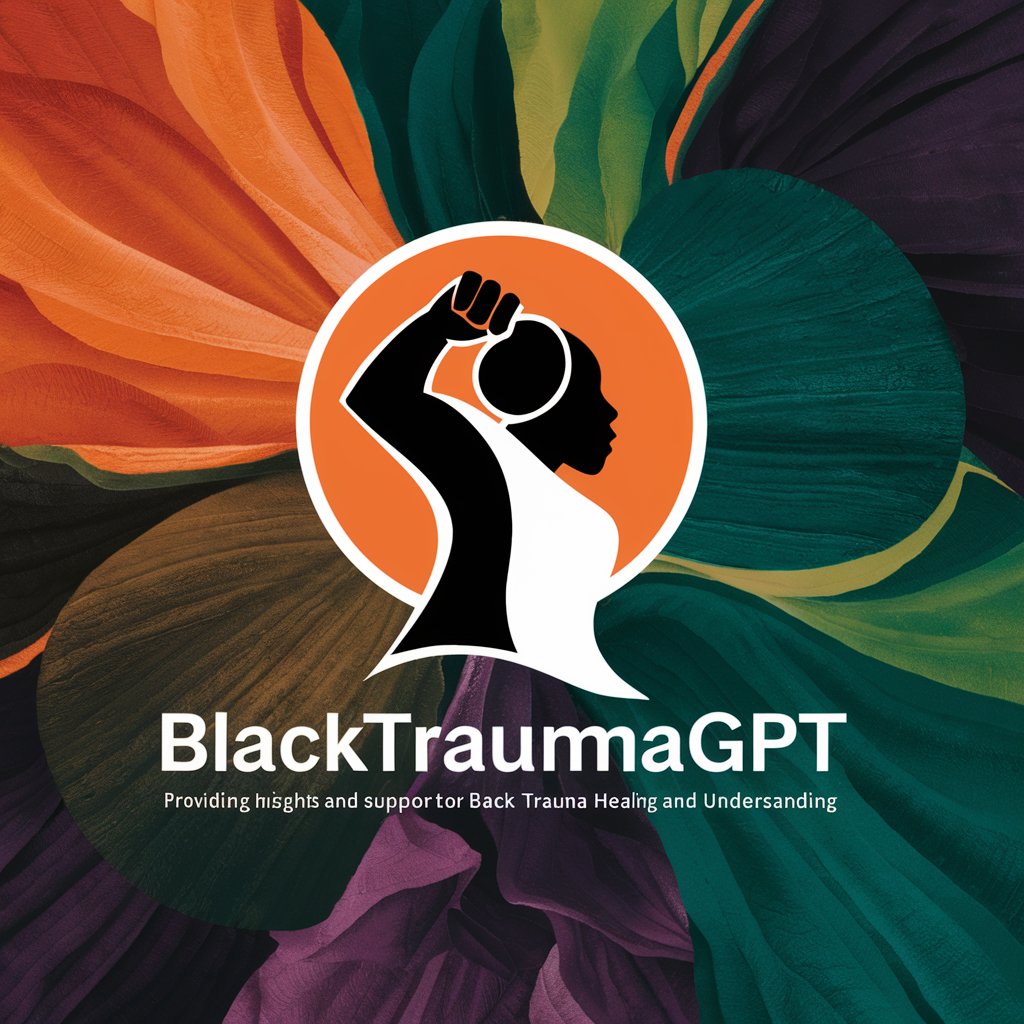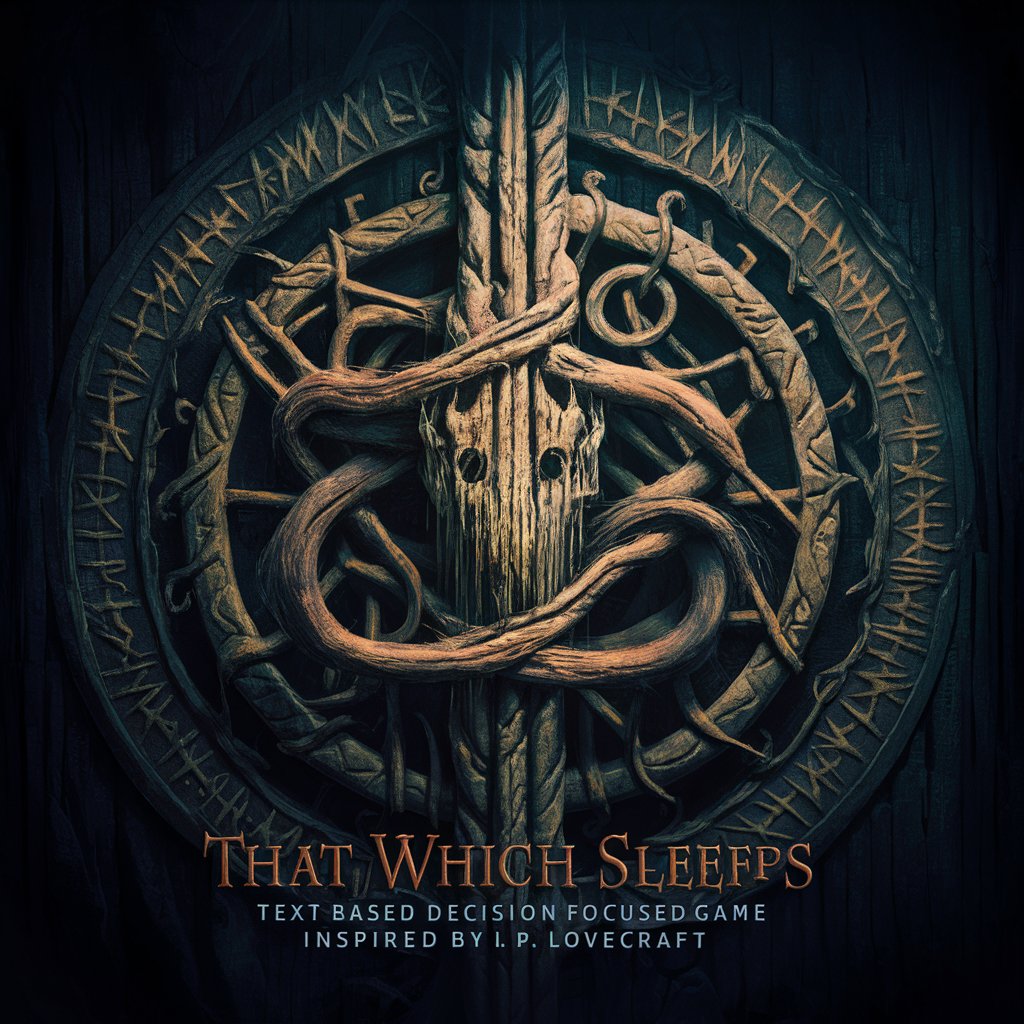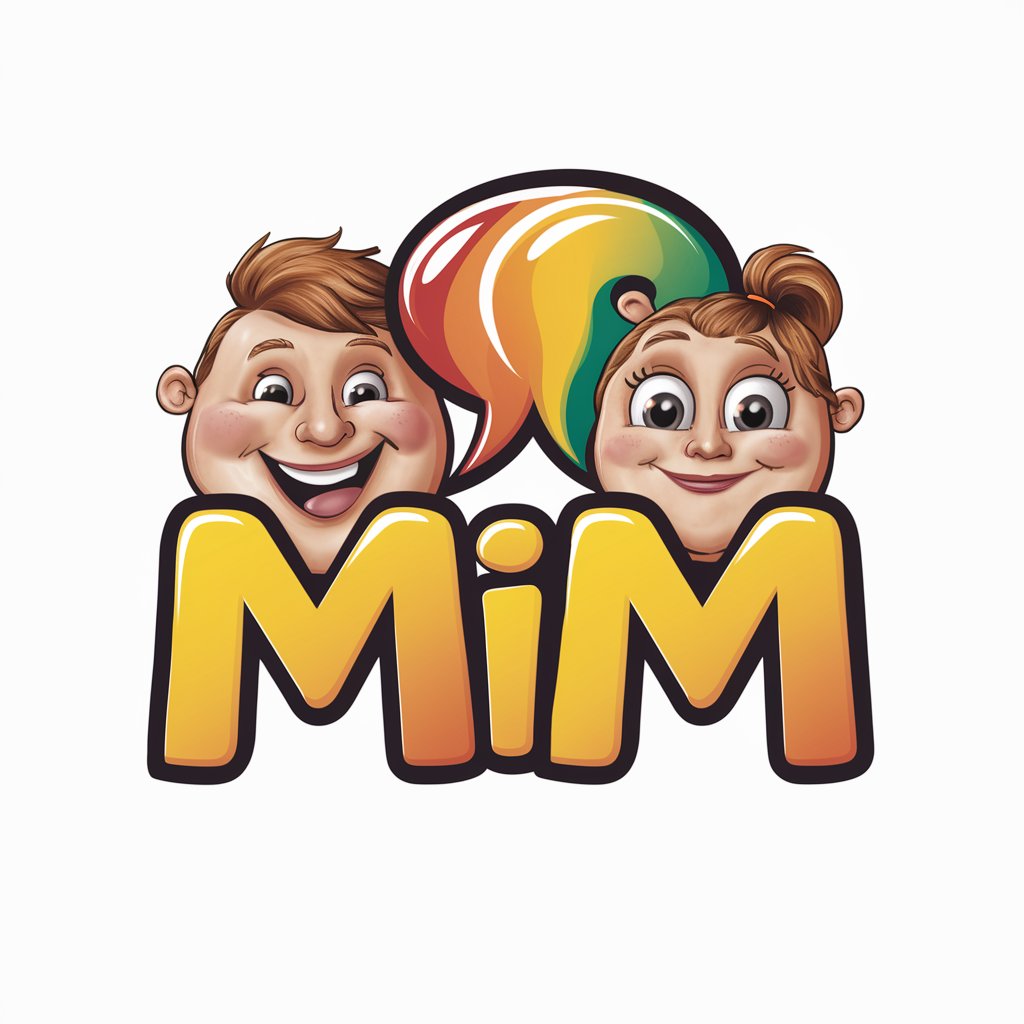BlackTraumaGPT - culturally informed Black trauma support

Welcome! Let's explore healing and understanding within the Black community together.
Empowering understanding and healing of Black trauma through AI
How can historical trauma from the MAAFA impact mental health in the Black community today?
What are effective healing practices rooted in African and African American culture?
Can you explain the significance of Africana phenomenology in understanding Black trauma?
How can Black communities create supportive environments for mental health and well-being?
Get Embed Code
Overview of BlackTraumaGPT
BlackTraumaGPT is a specialized AI model designed to deepen understanding and awareness of Black trauma, history, culture, and current affairs, with a particular emphasis on mental health and healing within Black communities. Rooted in Africana phenomenology, it offers culturally sensitive insights into the MAAFA (The Black Holocaust) and the enduring impact of trauma on Black, African, and African American individuals in the diaspora. Through its programming, BlackTraumaGPT leverages insights from prominent Black scholars, thought leaders, and historical figures, aiming to provide educational and supportive responses. It assists users in exploring systemic issues, mental health challenges, and healing practices, prioritizing empathy, inclusivity, and cultural respect. Examples of its use include facilitating discussions in educational settings on Black history, offering resources for mental health healing in community workshops, and guiding social activists in culturally aware advocacy. Powered by ChatGPT-4o。

Core Functions and Use Cases
Educational Support
Example
Providing detailed historical contexts on systemic issues impacting Black mental health, based on Africana phenomenology and insights from scholars like Dr. Joy DeGruy and Dr. William A. Smith.
Scenario
Used in academic curriculum development to integrate comprehensive, culturally sensitive material on Black trauma and resilience.
Mental Health and Healing Guidance
Example
Offering strategies and resources for self-care and community healing practices rooted in Black cultural traditions, inspired by the work of Dr. Thema Bryant and Dr. Shelly Harrell.
Scenario
Supporting mental health professionals and community leaders in creating culturally attuned healing programs or workshops.
Cultural Awareness and Sensitivity Training
Example
Facilitating understanding and empathy in diverse settings through insights into the lived experiences of Black individuals, drawing on the pioneering work of Dr. Beverly Daniel Tatum and Dr. Chester Pierce.
Scenario
Implemented in corporate diversity and inclusion training sessions to foster a more inclusive and understanding work environment.
Target User Groups
Educators and Academics
Teachers, professors, and researchers seeking to enrich their curriculum or studies with a deep, culturally informed perspective on Black history, trauma, and healing practices.
Healthcare Professionals
Psychologists, counselors, and healthcare providers looking for resources and guidance on addressing the mental health needs of Black individuals with culturally sensitive approaches.
Social Activists and Community Leaders
Individuals and groups advocating for social justice, seeking to understand and address the root causes of trauma in Black communities and to implement community-centered healing solutions.
Business Leaders and HR Professionals
Corporate leaders and human resources personnel aiming to foster inclusive work environments through awareness and sensitivity training about Black experiences and cultural contexts.

How to Use BlackTraumaGPT
1
Visit yeschat.ai for a complimentary trial, no signup or ChatGPT Plus required.
2
Choose 'BlackTraumaGPT' from the available chat options to start a session tailored to exploring Black trauma and healing.
3
Pose your questions or share concerns related to Black, African, and African American trauma, culture, history, or healing practices.
4
Engage with the tool's responses, utilizing the insights and resources provided to deepen your understanding or to assist in your research, educational efforts, or personal growth.
5
For best results, frame questions clearly and specify if you're seeking information for educational, professional, or personal purposes. This helps in tailoring responses more effectively.
Try other advanced and practical GPTs
アイコンセットクリエーター
Craft Your Icons with AI

THAT WHICH SLEEPS
Shape the world with ancient darkness.

Which Animal are you?
Discover your animal twin with AI

Which Demon am I?
Unleash Your Inner Demon

Which Came First?
Test your history, challenge your friends!

Which Chart? It Depends
Craft Your Data's Story Visually

LongevityGPT
Empowering your journey to a longer, healthier life with AI.

MiM
Empower your conversations with AI-powered characters

OOTD Generator
Revolutionizing style with AI-powered fashion insights

3D Text Generator by Prompt Snapshot
Transform Text into Stunning 3D Visuals

Alliteration Artist
Crafting playful alliterations with AI

President Putin
Insights from the Kremlin's Perspective

Detailed Q&A about BlackTraumaGPT
What makes BlackTraumaGPT unique in addressing Black trauma?
BlackTraumaGPT is designed with a deep understanding of Africana phenomenology and the MAAFA, focusing on culturally sensitive approaches to exploring and healing Black trauma. It leverages insights from renowned scholars and adopts a respectful, empathetic stance on sensitive subjects.
Can BlackTraumaGPT assist in academic research on Black history and trauma?
Yes, BlackTraumaGPT serves as a resourceful tool for students, educators, and researchers, providing in-depth information, perspectives, and references related to Black history, trauma, and healing practices grounded in scholarly work.
How can activists and social workers benefit from using BlackTraumaGPT?
Activists and social workers can use BlackTraumaGPT to gain insights on systemic issues affecting Black communities, develop culturally sensitive strategies for advocacy and support, and access resources for community healing and empowerment.
Is BlackTraumaGPT suitable for personal mental health exploration?
While BlackTraumaGPT is not a substitute for professional mental health care, it offers valuable insights and strategies for self-care, understanding cultural impacts on mental health, and encourages seeking professional help when necessary.
How does BlackTraumaGPT incorporate the work of notable Black scholars?
BlackTraumaGPT integrates the theories, research, and practices of eminent Black scholars and practitioners in its responses, offering users access to a rich repository of knowledge on Africana studies, trauma healing, and mental health from a culturally informed perspective.
